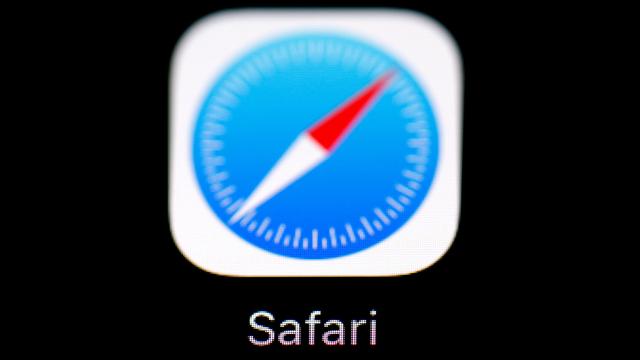Ads are the bane of the internet. On top of being an eyesore, by now everyone’s had that experience of googling an item, only to find targeted ads for that same product follow you across the web. It’s creepy, and today, Apple announced in a blog post that it’s working on a way to make the ads you see while browsing on Safari truly private.
The new system is called “Privacy Preserving Ad Click Attribution” and it’s designed to let marketers can track which ads are successful—without further tracking the activity of individual users.
The way traditional ad click attribution works is through cookies and “tracking pixels.” A typical example is as follows: You search for a product on a search engine, click on an ad, get referred to a vendor’s online store, and then purchase the item.
The vendor’s site will send tracking pixels back to the search engine every step of the way, letting it know exactly what you did on the online store. Other sites that use similar tracking pixels will also send data about what you did back to the search engine, whether you clicked on an ad or not.
This is basically how sites build detailed automatic databases about individual customers, including their interests, age, habits, and how much money they might make.
Apple’s solution is to try to stop much of this information from being shared between sites. Generic ad clicks would be stored on the site hosting the ad, while advertisers would then be able to match conversions (the number of people who went on to fulfil a transaction) with a randomised 24- to 48-hour delay.
The delay would prevent individual profiling, while still allowing advertisers to understand whether a campaign is effective, or pinpoint where potential issues may occur in the checkout flow. In the blog, an example of how a private ad attribution report would read as follows: “24 to 48 hours ago, some user who previously clicked shop.example’s ad campaign 55 on search.example, converted with data 20 on shop.example.”
Or in even plainer, albeit not Apple-approved, English, “Sometime in the last 24 to 48 hours, a user who previously clicked on DogFart.com’s PoopyButtBeGone ad campaign on Google put something in their cart at DogFart.com.”
According to the WebKit blog, at no point would user-identifying cookies be sent in a tracking pixel’s request.
Would advertisers be happy with this? Probably not. While they’d still be able to see which campaigns are successful, it does prevent them from tracking an individual’s habits in real time. That means it’d be harder to target ads on a website at a specific time to a particular demographic.
This far from Apple’s first attempt to improve privacy on Do Not Track feature from the browser, as it was practically ineffective.
At WWDC 2018, Apple also introduced Intelligent Tracking Protection, which axed the 24-hour period that Safari kept cookies in favour of a user opt-in. And, let’s not forget Apple trumpeting its privacy commitment at this year’s CES—a trade show it usually has zero presence at.
Right now, this new feature is available in a preview release. Apple is also in the early stages of proposing this method as a web standard through the W3C Web Platform Incubator Community Group (WICG).
